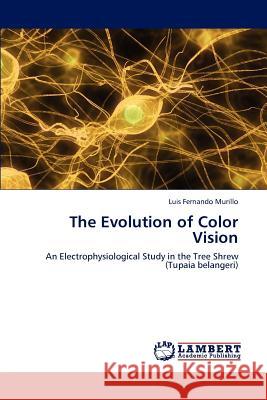The Evolution of Color Vision » książka
The Evolution of Color Vision
ISBN-13: 9783845473710 / Angielski / Miękka / 2012 / 176 str.
Anthropologists earlier believed the tree shrew (Tupaia belangeri) to be a close relative of primates and classified the species in the prosimian suborder. Although that classification has now been questioned, the tree shrew undoubtedly represents a pivotal chapter in the natural history of the evolution of the brain. With its cone dominated retina, this animal is capable of carrying out color discrimination under isoluminant conditions (i.e. where hue alone is the cue). Unlike primates, it is capable of doing so even after ablation of the primary visual cortex. This book purports to be an electrophysiological examination of the functional architecture and integrative circuitry required for color vision in both the visual cortex and subcortical structures. It is, thus, a contribution to the study of the evolution of color vision -a topic which not only concerns Psychologists but is increasingly the focus of much attention among Philosophers.
Anthropologists earlier believed the tree shrew (Tupaia belangeri) to be a close relative of primates and classified the species in the prosimian suborder. Although that classification has now been questioned, the tree shrew undoubtedly represents a pivotal chapter in the natural history of the evolution of the brain. With its cone dominated retina, this animal is capable of carrying out color discrimination under isoluminant conditions (i.e. where hue alone is the cue). Unlike primates, it is capable of doing so even after ablation of the primary visual cortex. This book purports to be an electrophysiological examination of the functional architecture and integrative circuitry required for color vision in both the visual cortex and subcortical structures. It is, thus, a contribution to the study of the evolution of color vision -a topic which not only concerns Psychologists but is increasingly the focus of much attention among Philosophers.











